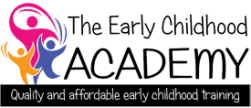*Collaborative Post*
Choosing the right education path for your child is vital. While traditional public and private schools are the most popular option, there are an array of alternative schooling methods that could also be worth exploring. Some of these could be better suited to your child’s individual needs and learning style. Below are 7 examples of alternative types of school to consider.
Special education needs (SEN) school
SEN schools are designed to help kids with disabilities and impairments. Some are centred around specific types of disability like visual impairment, learning difficulties or autism. Others cater to a mixed range of disabilities. Teachers at these schools are likely to have better training in dealing with disabled pupils and classroom facilities may be better designed to help those with disabilities. You may want to consider such a school if your child has a disability.
Religious school
Religious schools are centred around a specific faith. Teachings of this faith may be infused into the curriculum and certain religious rituals may be enforced (such as the midday prayer and ramadan within a muslim school). Such schools could be worth looking into if religion is important to your family.
Single-sex school
Most schools are mixed-sex, but there are quite a few single-sex schools across the country. Such schools may reduce distractions and can encourage kids to explore a range of subjects and extracurricular activities without being swayed by gender stereotyping. Many of the oldest private schools are single-sex, but a large number of public schools are also single-sex.
International school
International schools do not follow the national curriculum of one country, but instead teach a global curriculum that caters to students of various cultural backgrounds. Such schools can help provide cultural exposure for kids and help kids learn and study in a variety of languages. They are popular among kids who have migrated from another country, as well as kids that are constantly moving around due to parents having to travel for work. Consider whether an international school could be suited to your child.
Montessori school
Montessori schools follow the educational approach founded by Maria Montessori – which encourages self-directed hands-on learning. Kids are encouraged to learn at their own pace and explore their own interests, while still learning traditional subjects. Classes consist of smaller groups with more focus on the individual. Such an environment can help some kids find what they are naturally good at and thrive at it.
Waldorf school
Waldorf schools practise the educational philosophy of Rudolph Steiner. These schools heavily revolve around the arts (music, dance and painting), as well as craft skills like knitting. Artistic activities are used to teach lessons in other subjects. Outdoor play is also heavily used to teach subjects. Such schools can be beneficial to kids that already show an interest in the arts or the great outdoors.
Homeschooling
Finally, there is the option of homeschooling your child. This requires you to be the teacher, but gives you complete control as to what your child learns and how they learn it. It could be a worthwhile form of education to explore if you don’t think a traditional school is the right environment for your child.

